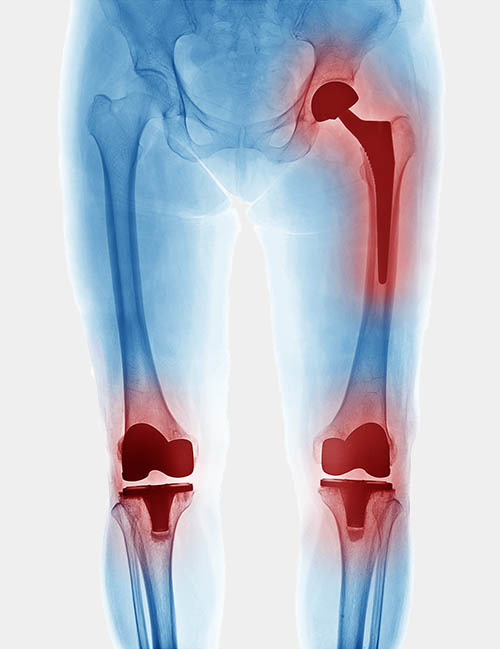
Leave a message

Melomed Bellville - 021 110 5075/ 6 |Melomed Mitchells Plain - 021 110 5075/ 6
Hip and knee replacement surgery involves replacing the affected hip or knee joint bone and cartilage with artificial material. The procedure can help relieve pain and restore function in severely diseased hips and knee joints. To determine whether replacement surgery is appropriate for you, Dr Mohideen will assess your hip or knee's range of motion, strength and stability. X-rays will also help determine the extent of the damage.

Arthroscopy, also known as keyhole surgery, is a minimally invasive surgical procedure that allows Dr Mohideen to view the knee joint without making a large incision through the skin and other soft tissues. During the procedure, Dr Mohideen will make a very small incision and insert a tiny camera called an arthroscope into the affected area. The camera displays pictures on a video monitor, and Dr Mohideen uses these images to guide miniature surgical instruments.
The benefits of hip and knee arthroscopy include less pain and a shorter recovery time as compared with open surgery.
Hip or knee revision surgery is performed to repair an artificial hip or knee joint (prosthesis) that has been damaged due to infection or normal wear and tear or infection of the prosthetic. This type of surgery helps to correct the problem so the hip or knee can function normally again.
Following surgery, you'll remain in the hospital for a few days. You may have to lay in bed with a special cushion between your legs to keep the new joint comfortable. Physical therapy generally starts the day after surgery. A few days after physical therapy, you can begin walking with a walker, crutches, or a cane. You'll continue with physical therapy for weeks to months after the surgery.
If you experience any ongoing pain or discomfort in the treated area, contact Dr Mohideen.